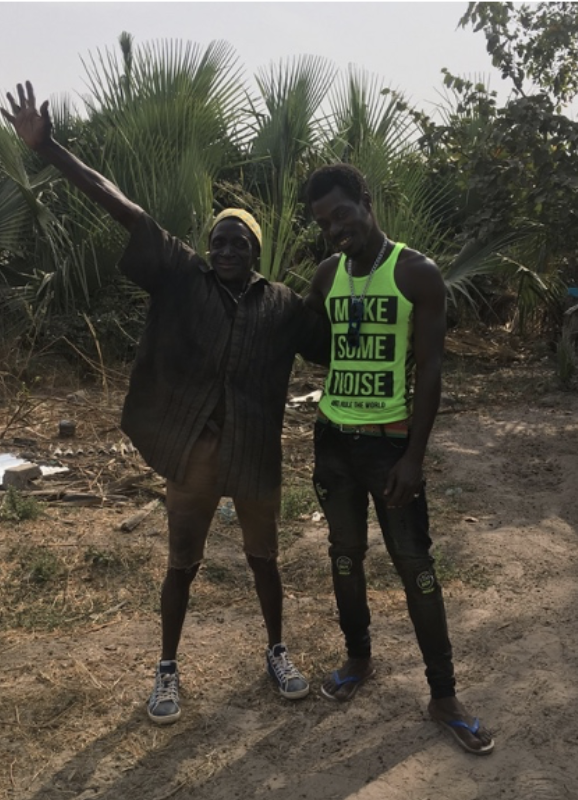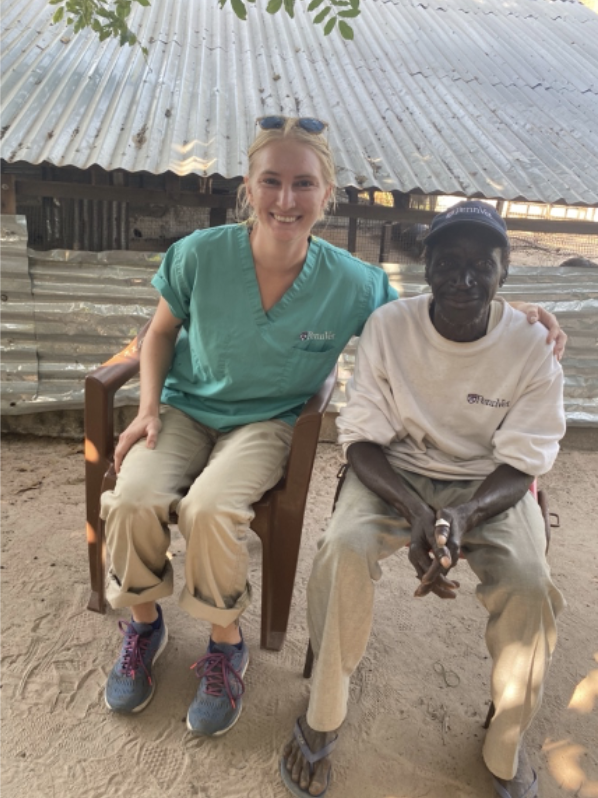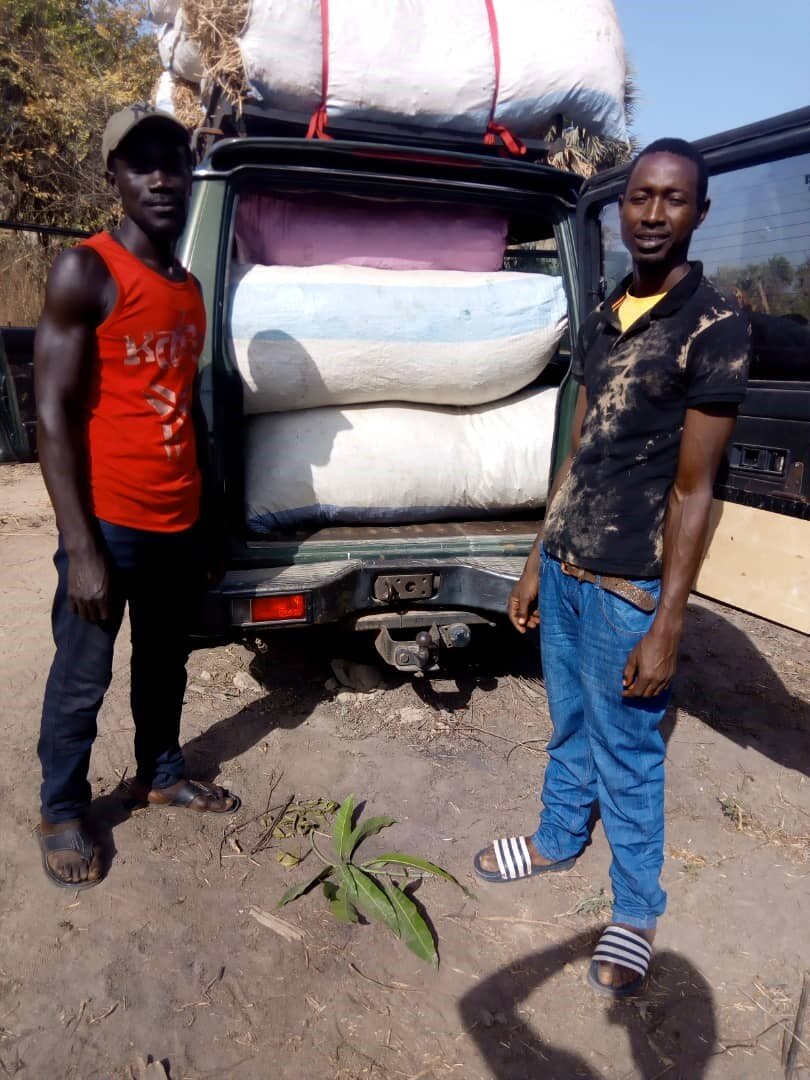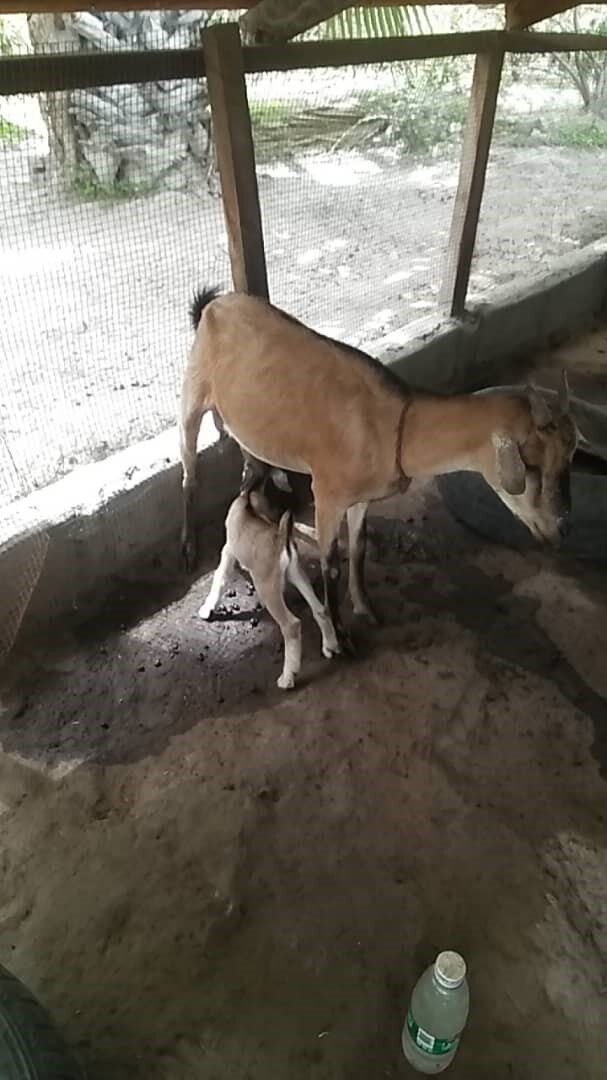FAIR Farms Gambia team gathers under the shade of a tree, showcasing the diverse and committed individuals driving sustainable agriculture in their community.
FAIR Farms Gambia is the new name for our partner in The Gambia. Previously known as Gambia Goat Dairy, Rockflower has been a supporter of their growth and emergence as a force for sustainable agriculture and local food sovereignty since 2019.
Started by two inspiring and innovative veterinary students from the University of Pennsylvania, Dr. Brianna Parsons and Dr. Corey Spies, together with a team of mentors and advisors, Gambia Goat Dairy set out to build a quantitative and qualitative social enterprise through rigorous research and accountability. Over the last five years, through a great deal of hard work, a new path forward has evolved. Committed to becoming a hub of knowledge and shared practices, FAIR Farms Gambia is positioning themselves as a leader in innovative, community-led farming practices.
Partnering directly with Penn Vet in the early years created a novel operating structure at the university, developing a research initiative driven by community inclusion and co-creation, dedicated to addressing community-defined needs through equitable practices. Receiving a grant from Penn Global Holman Africa Research and Engagement Fund allowed the team to continue research into the blended issues of One Health, Social Entrepreneurship and Sustainable Agriculture. There are plans ahead for sharing more of the FAIR Farms Approach in Botswana and other countries.
Goats on the farm at FAIR Farms Gambia.
Every individual who contributed to the growth of Gambia Goat Dairy should take pride in the fact that lessons learned and acted upon have now enabled FAIR Farms to be led by Dr. Brianna Parsons and her husband and Co-Founder Sulay Camera, assuring consistent and local leadership model, with more cultural humility and ease in decisions.
The focus of the last couple of years has been to expand the scope to include a variety of sustainable farming methods such as silvopasture, irrigated vegetable and fruit tree production, and integrated livestock crop production through composted manure replacing fertilizer needs.
Understanding the complexities of access to food for communities during crises such as the 2020 pandemic, have meant that quick thinking and adaptation remain at the forefront of their work. Highlighting the need for risk reduction in food systems, FAIR Farms created “circularity” opportunities, by using “wastes” from one production system as “inputs” for another, for example composted goat manure was used as fertilizer for a vegetable garden, and edible scraps were fed to the rabbits to reduce feed costs. This also solidified traditional Gambian farming practices that have been handed down through the generations of families dependent on the land for their needs. The move for diversification was intentional to reduce risks, diversify revenue streams, promote environmental circularity and resource recovery, and grow the farm to continually serve the needs of Gambian small-holder farmers.
Recently, the rent demanded for the land FAIR Farms utilized skyrocketed, with two years' rent equating to the cost of outright land purchase in the Gambia. This situation jeopardized their operations, leading to the loss of their pilot farmland. Recognizing the importance of land ownership in ensuring the sustainability of agricultural initiatives, FAIR Farms has now embarked on a critical mission to secure permanent farmland to continue their impactful work.
Rockflower has a long term vision of a Seed to Canopy Funding Model™, which allows for those partners whose goal is to expand to do so within a trusted and safe model. FAIR Farms Gambia, is now in the Roots and Shoots phase of this Five Stage of Funding model, and we are delighted to be able to support them further in their quest to acquire permanent land for their practice.
Rockflower’s Seed to Canopy Funding Model™
FAIR Farms is now reaching out to the global community to support their cause. With Rockflower's continued support, every additional contribution will help FAIR Farms secure the land needed to sustain and expand their innovative agricultural practices. This land will not only serve as a base for their operations but will also act as a community hub for learning and sharing sustainable farming techniques that can withstand the challenges posed by climate change.
Becoming a trusted Knowledge Exchange is part of the overall goal to enhance food security in The Gambia and beyond. By providing a space for reciprocal learning and sharing of traditional ecological knowledge, the impact of this collective model will have a far reaching effect.
Key to the long term vision of FAIR Farms is the desire to build advocacy for Gambian and other African farmers to push for changes in structural inequities in the global food supply. This is hard for marginalized farmers to do alone, but when done collectively, a wave of possibility occurs.
FAIR Farms Gambia stands as a testament to what can be achieved when everyone’s voice is counted and knowledge from all corners of the globe can be respected and utilized to ensure a nourished and sustainable community is built for generations to come. Join us in supporting FAIR Farms Gambia.






















